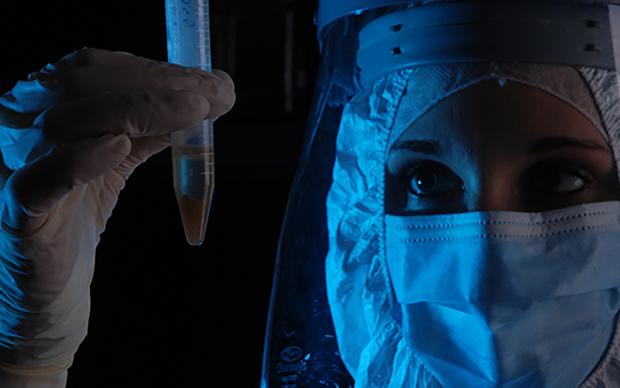Traits such as height, metabolism, and disease risk can be affected differently – and even in opposite directions – depending on whether the genetic variant responsible is inherited from the mother or the father, finds a study published today in Nature. Led by an SIB Group based at the University of Lausanne and Unisanté, the work introduces an innovative method for studying such parent-of-origin effects, uncovers novel genetic variants influencing human health, and provides one of the first pieces of evidence for the ‘parental conflict’ evolutionary hypothesis in humans.
Genes that are switched off during the formation of eggs or sperm are not expressed in the offspring. According to the parental conflict hypothesis, this process – called genomic imprinting – evolved as an adaptation to competing evolutionary interests: paternal genes may favour increased growth to maximize the success of their offspring, even at a cost to the mother, while maternal genes may limit offspring growth to conserve resources for the mother’s survival and future reproduction.
Determining parental origin of specific genes at scale
Thousands of genetic variants have been linked to different human traits and diseases. Such studies usually ignore which parent these variants come from, assuming this does not influence their effect. However, some genes are naturally ‘switched off’ in either eggs or sperm – meaning certain variants only have an effect if inherited from the parent where the gene is ‘on’.
Genes that are switched off during the formation of eggs or sperm are not expressed in the offspring. According to the parental conflict hypothesis, this process – called genomic imprinting – evolved as an adaptation to competing evolutionary interests: paternal genes may favour increased growth to maximize the success of their offspring, even at a cost to the mother, while maternal genes may limit offspring growth to conserve resources for the mother’s survival and future reproduction.
A major challenge for studying parent-of-origin effects (POEs) is a lack of large numbers of DNA samples from both individuals and their parents. To get around this, SIB’s Statistical Genetics Group, led by Zoltán Kutalik and based in the Department of Computational Biology at the University of Lausanne and Unisanté, developed a computational method to infer parental origin using genetic data from any relative. The method first identifies whether a relative is on the mother’s side by looking for shared sequences on the X chromosome or the mitochondrial DNA, both of which are inherited maternally. It then uses patterns of shared segments across the rest of the genome to infer which were inherited from the mother.
Using this technique, the researchers assigned maternal or paternal origin to genetic variants from over 236,000 people participating in three large biobanks in the UK, Estonia, and Norway. This increased the number of samples available for POE investigations by nearly 5-fold.
Genes for growth and metabolism show opposing parent-specific effects
Using these data, the researchers identified more than 30 genetic variants whose impacts differ depending on whether they were inherited from the mother or the father – many of which had not been detected in previous studies.
Nineteen of these showed ‘bi-polar’ patterns, where the same genetic variant increased a trait when inherited from one parent but decreased it when inherited from the other. Such effects are typically invisible in standard genetic association studies, where opposing parental signals cancel each other out.
All 19 bi-polar POEs are related to growth and metabolism, and include traits such as body mass index, blood lipid levels, and height. This finding supports the parental conflict hypothesis and highlights a general role for POEs in shaping complex human traits.
Providing new insights into health and disease
The study also highlights the role of POEs in conditions like type 2 diabetes, obesity, and cardiovascular disease: many of traits showing bi-polar effects are established indicators of metabolic health and closely tied to insulin resistance and metabolic syndrome. While the study focused on healthy adults of European ancestry, the researchers note that parent-of-origin effects may play an even greater role in rare developmental disorders. They plan to further explore how these effects might alter gene expression and contribute to early-life conditions.
Reference(s)
Hofmeister R.J. et al. Parent-of-origin effect on complex traits in up to 236,781 individuals. Nature
Image credit: Daniel Eriksson, Unsplash













